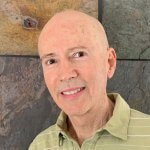Share the Power
LIKE OTHER FOLLOWERS of HumbleDollar, I look forward to Jonathan’s Saturday articles. I have to admit that my interest has been heightened by his cancer diagnosis. Not many folks would have the courage to write about what's going through their mind when they’re fighting for their life. We don’t often get this kind of insight into someone’s life.
Jonathan has probably received a lot of advice about treatment plans and the doctors he should see. I’m sure most of it is out of love and respect for him. I’m not going to offer an opinion on how he should deal with his illness. But I do have one piece of advice: Make sure you have a power of attorney for health care, not just for your own sake, but also for the sake of loved ones. Why is that so important? We don’t know how our life is going to end and how it’s going to affect those around us.
Unfortunately, most of us are so focused on the financial aspect of retirement that a health-care power of attorney is often overlooked. I didn’t realize how important it was until my father started his cancer treatment.
He battled cancer for almost three years. His journey had a profound effect not only on him, but also on our family. After my father started chemotherapy, we noticed his behavior changed. He would easily get angry and rattled. We had to take his car keys away because we feared he’d experience road rage.
My mother would sometimes phone, and ask if I’d come over and see if I could calm him down. He’d get verbally abusive. My dad would tell my mom that he didn’t need her, and that she should leave and not come back. I started spending more time at my parents’ home, because there were times when my mother didn’t want to be alone with my father. This was not the father I’d known.
We told the doctor about my dad’s volatile temper, but he didn’t take us seriously and thought we were overreacting. He even made light of it. “Oh, you’re asking for a happy pill.” Then, one day, I told the doctor that we’d removed my father’s gun from the house because we were afraid of what he might do when he got angry. The doctor finally prescribed medication, but it didn’t help.
Meanwhile, the doctor became increasingly difficult to work with and showed little sympathy. During his medical training, he must have skipped the class on bedside manner. My mother and I would catch hell not only from my father’s outbursts at home, but also from his doctor during office visits.
One day, we told the doctor that my father was complaining about his back bothering him. After examining him, he saw he had shingles. The doctor started berating my mother, telling her she needed to do a better job taking care of her husband. The problem was, my father wasn’t a good patient. He wouldn’t let us touch him.
We tried changing doctors. But two doctors we contacted wouldn’t take him. The third one, we felt, was located too far away. Also, my dad didn’t want to leave his current doctor, so we stayed.
Finally, the doctor told us he couldn’t cure my father, but he could try to extend his life if we wanted to continue treatment. If it was left up to me, I would have said no. My dad’s quality of life was already poor, and I was concerned about my mother’s well-being. But it wasn’t up to me.
The only one who could stop treatment was my mother. She had power of attorney over my father’s health care and it was her decision to make, because my dad couldn’t fully comprehend what was going on.
My mother wanted to continue. She wasn’t ready to let go of him. The doctor prescribed an expensive drug that wasn’t covered under my father’s prescription drug plan. Luckily, because my parents’ income was low, we were able to get financial help from a charitable organization.
Unfortunately, the drug caused my dad to become incontinent. My mother decided it was time to stop treatment and my father entered hospice care.
A few weeks later, we received a letter from my father’s doctor. He was informing all his patients he was closing his office. We heard his practice was in financial trouble because of some bad business decisions. Maybe that’s why he treated us the way he did.
During hospice care, the softer side of my father started to reappear. He was no longer the angry person that he’d been during his treatment. The drugs he was given must have worked their way out of his system.
During my father’s ordeal, I learned that you have to take into consideration how your treatment for a life-threatening illness is affecting the loved ones who are taking care of you. When there’s no hope for survival and my quality of life is poor, I don’t want to burden my wife. I hope that I’m of sound mind and that I’ll know when it’s time for me to go. If not, I want my wife—who holds my power of attorney for health care—to step in and make that decision for me.
 Dennis Friedman retired from Boeing Satellite Systems after a 30-year career in manufacturing. Born in Ohio, Dennis is a California transplant with a bachelor's degree in history and an MBA. A self-described "humble investor," he likes reading historical novels and about personal finance. Follow Dennis on X @DMFrie and check out his earlier articles.
Dennis Friedman retired from Boeing Satellite Systems after a 30-year career in manufacturing. Born in Ohio, Dennis is a California transplant with a bachelor's degree in history and an MBA. A self-described "humble investor," he likes reading historical novels and about personal finance. Follow Dennis on X @DMFrie and check out his earlier articles.The post Share the Power appeared first on HumbleDollar.



